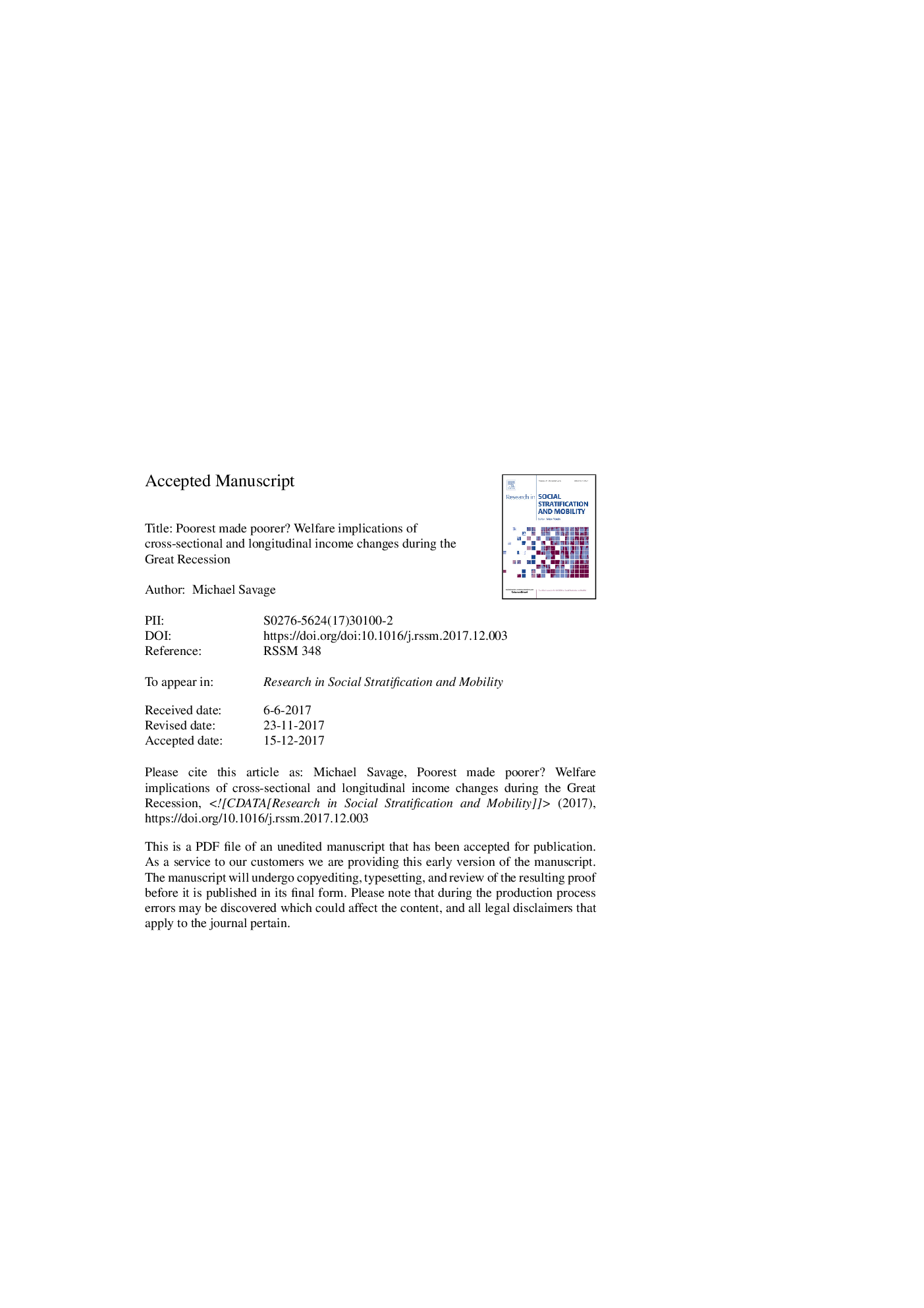ترجمه فارسی عنوان مقاله
فقیر ساخته شده فقیرتر؟ پیامدهای رفاه درآمدهای مقطعی و طولی در طی رکود بزرگ
عنوان انگلیسی
Poorest made poorer? Welfare implications of cross-sectional and longitudinal income changes during the Great Recession
| کد مقاله | سال انتشار | تعداد صفحات مقاله انگلیسی |
|---|---|---|
| 99069 | 2018 | 39 صفحه PDF |
منبع

Publisher : Elsevier - Science Direct (الزویر - ساینس دایرکت)
Journal : Research in Social Stratification and Mobility, Volume 53, February 2018, Pages 64-76
ترجمه چکیده
بسیاری از کشورهایی که به شدت تحت تاثیر رکود اقتصادی قرار دارند، تغییرات درآمد را در دوره رکود نشان دادند؛ به نظر می رسد فقیرترین افراد در اثر افتی در درآمدهای واقعی ناکارآمد بوده اند. اما سوال باقی می ماند که تا چه حد زیان های بالاتر از حد میانگین در پایین توزیع درآمد ناشی از زیان های درآمد برای افرادی که از فقیرترین ها شروع شده اند یا تا چه اندازه این تلفات توسط افرادی که به فقیرترین موقعیت درآمد رسیده بودند، رانده شد در طول رکود اقتصادی. در این مقاله، تقسیم تغییر درآمد در پایین توزیع درآمد با استفاده از یک رویکرد طولی، که به ما اجازه می دهد تا به این سوال پاسخ دهیم. نتایج نشان می دهد که برای پنج کشور اروپایی با الگوهای رگرسیاری از دست دادن درآمد بین سال های 2007 و 2010، زیان های بالاتر از میانگین در فقیرترین قله ها به شدت تحت تاثیر تغییرات در ترکیب در پایین توزیع درآمد، به جای از دست دادن درآمد برای افرادی که از فقیرترین افراد آغاز شده است. دلایل رفاه از تغییرات در توزیع درآمد، به طور انتقادی بستگی دارد که آیا یک منظر طولی (نامعلوم) گرفته شده است یا خیر، و در واقع چگونگی این ناشناسی در تابع رفاه اجتماعی اساسی تفسیر شده است.

